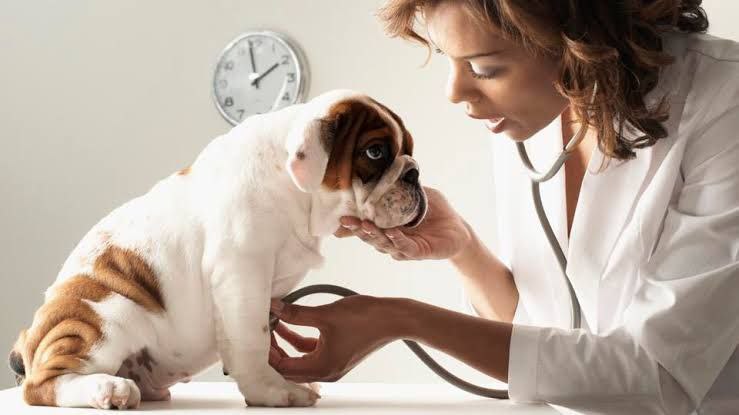Dog throwing up yellow bile in morning
Understanding Yellow Bile Vomiting
Vomiting yellow bile in the morning is a common concern among dog owners. The yellow color is often associated with bile, a digestive fluid produced by the liver and stored in the gallbladder. Bile plays a role in breaking down fats and aiding in digestion. When a dog vomits yellow bile, it typically indicates an empty stomach or an accumulation of bile in the stomach.Dog throwing up yellow bile in morning
Causes of Yellow Bile Vomiting in the Morning
Several factors can contribute to a dog vomiting yellow bile in the morning:
- Empty Stomach
- Dogs that go for an extended period without eating can experience bile reflux into the stomach, resulting in vomiting of yellow bile. This is particularly common in the morning when there has been no food intake overnight.Dog throwing up yellow bile in morning
- Gastrointestinal Upset
- Dogs with sensitive stomachs or underlying gastrointestinal issues such as gastritis or gastroenteritis may experience increased bile production and subsequent vomiting. These conditions can be triggered by dietary indiscretion, food allergies, or infections.Dog throwing up yellow bile in morning
- Hunger
- Some dogs may have an increased sensitivity to an empty stomach, leading to excessive bile production and subsequent vomiting. This can occur when dogs are fed infrequently or have long gaps between meals.Dog throwing up yellow bile in morning
- Bile Reflux
- Bile reflux occurs when bile flows backward from the small intestine into the stomach, causing irritation and vomiting. This can be due to an underlying health condition or an anatomical abnormality.Dog throwing up yellow bile in morning
When to Be Concerned

While occasional yellow bile vomiting may not be a cause for immediate concern, there are situations where veterinary attention should be sought:
- Frequent or Persistent Vomiting
- If your dog vomits yellow bile frequently or the episodes persist for an extended period, it is advisable to consult your veterinarian. Frequent vomiting can lead to dehydration and electrolyte imbalances.
- Other Symptoms
- If your dog exhibits additional concerning symptoms such as lethargy, loss of appetite, diarrhea, abdominal pain, or changes in behavior, it may indicate an underlying health issue that requires veterinary evaluation.
- Blood in Vomit
- If you observe blood or any red discoloration in the vomit, it is crucial to seek immediate veterinary attention, as it could indicate a more serious condition such as gastrointestinal bleeding.
Managing Yellow Bile Vomiting
Here are some steps you can take to help manage and prevent yellow bile vomiting in your dog:
- Regular Feeding Schedule
- Establish a regular feeding schedule to ensure your dog is not going too long without food. Divide meals into smaller portions throughout the day, if necessary.
- Bedtime Snack
- Providing a small bedtime snack can help alleviate an empty stomach overnight. Consult with your veterinarian regarding appropriate snacks or dietary options for your dog.
- Dietary Modifications
- If your dog experiences frequent bile vomiting, your veterinarian may recommend dietary modifications such as a bland diet or a special gastrointestinal diet that is gentle on the stomach.Dog throwing up yellow bile in morning
- Avoidance of Dietary Triggers
- Identify and eliminate any potential dietary triggers or food allergens that may be contributing to gastrointestinal upset.
- Anti-Nausea Medications
- In some cases, your veterinarian may prescribe anti-nausea medications to help manage vomiting and alleviate discomfort.
When to Seek Veterinary Assistance

It is advisable to consult your veterinarian if:
- Yellow bile vomiting persists or occurs frequently.
- Your dog exhibits additional concerning symptoms.
- Blood is present in the vomit
Home Care Tips
While it’s essential to consult with your veterinarian for a proper diagnosis and treatment plan, here are some home care tips that may help in managing yellow bile vomiting in your dog:Dog throwing up yellow bile in morning
- Offer Small, Frequent Meals
- Instead of feeding large meals, offer smaller and more frequent meals throughout the day. This can help prevent an empty stomach and reduce the chances of bile reflux.
- Consider a Late-Night Snack
- Providing a small, easily digestible snack before bedtime can help maintain a more stable stomach environment overnight. Consult with your veterinarian for suitable snack options.
- Avoid Dietary Triggers
- Identify any specific foods or ingredients that may trigger gastrointestinal upset in your dog. Avoid feeding these items and opt for a diet that is gentle on the stomach.
- Monitor Water Intake
- Ensure your dog has access to fresh water at all times. However, it’s best to monitor water intake if vomiting is frequent or persistent. Consult with your veterinarian for guidance on managing hydration.Dog throwing up yellow bile in morning
- Reduce Stress
- Stress and anxiety can contribute to gastrointestinal disturbances. Create a calm and comfortable environment for your dog, provide regular exercise, and consider stress-reducing techniques such as soothing music or pheromone diffusers.Dog throwing up yellow bile in morning
Prevention of Yellow Bile Vomiting
To help prevent yellow bile vomiting in your dog, consider the following preventive measures:
Help! My Dog is Throwing Up Yellow Foam | Ultimate Pet Nutrition – Dog Health Tips
- Establish a Consistent Feeding Routine
- Stick to a regular feeding schedule and ensure your dog is receiving balanced and appropriate meals. Avoid sudden changes in diet or irregular feeding patterns.
- Consider Food Puzzle Toys
- Engage your dog’s mind and slow down their eating by using food puzzle toys. These toys can help extend mealtime and prevent gulping of food, reducing the chances of an empty stomach.
- Address Gastrointestinal Health
- Regular veterinary check-ups and preventive care can help identify and address any underlying gastrointestinal issues before they lead to vomiting. Follow your veterinarian’s recommendations for vaccinations, deworming, and fecal examinations.Dog throwing up yellow bile in morning
- Avoid Table Scraps and Food Scraps
- Human food, particularly fatty or spicy foods, can trigger gastrointestinal upset in dogs. Avoid feeding table scraps and ensure that your dog doesn’t have access to garbage or food waste.
- Gradual Diet Changes
- When transitioning to a new food, do so gradually over several days to allow your dog’s digestive system to adjust. Sudden diet changes can contribute to digestive upset and vomiting.Dog throwing up yellow bile in morning
Remember, it’s important to consult with your veterinarian to determine the underlying cause of the yellow bile vomiting and to receive appropriate guidance and treatment options for your dog’s specific situation.
Medical Intervention
If your dog continues to experience persistent or severe yellow bile vomiting, it’s important to seek veterinary assistance. Your veterinarian may recommend the following medical interventions:Dog throwing up yellow bile in morning
- Diagnostic Testing
- Your veterinarian may perform diagnostic tests such as blood work, fecal analysis, X-rays, or ultrasound to identify any underlying medical conditions contributing to the vomiting.
- Medications
- Depending on the cause of the vomiting, your veterinarian may prescribe medications to alleviate symptoms, reduce stomach acid production, or address specific underlying conditions.Dog throwing up yellow bile in morning
- Fluid Therapy
- In cases of dehydration or electrolyte imbalances resulting from persistent vomiting, your veterinarian may administer fluids either orally or intravenously to restore hydration and balance.Dog throwing up yellow bile in morning
- Anti-nausea and Antacids
- Anti-nausea medications can help reduce vomiting episodes and alleviate discomfort. Antacids may also be prescribed to reduce stomach acid production and prevent irritation.
- Dietary Supplements
- In some cases, your veterinarian may recommend dietary supplements such as probiotics or digestive enzymes to support gastrointestinal health and improve digestion.
When to Seek Immediate Veterinary Care

While yellow bile vomiting may not always indicate a medical emergency, there are situations where immediate veterinary care is necessary. Contact your veterinarian or an emergency clinic if your dog exhibits the following symptoms:
- Severe or Prolonged Vomiting
- If your dog is unable to keep any food or water down or vomits continuously for an extended period, it requires immediate attention.
- Bloody or Coffee Ground-like Vomit
- The presence of blood in the vomit or vomit that resembles coffee grounds could indicate a more serious condition, such as gastrointestinal bleeding. Urgent veterinary care is required.
- Abdominal Distention or Pain
- If your dog’s abdomen appears swollen or distended, or if it shows signs of discomfort, it may indicate a blockage or other serious condition requiring immediate evaluation.
- Lethargy or Weakness
- If your dog becomes lethargic, weak, or shows signs of significant weakness or collapse, it is a cause for concern and requires prompt veterinary attention.Dog throwing up yellow bile in morning
Always trust your instincts as a pet owner. If you are unsure or concerned about your dog’s health, it’s better to err on the side of caution and consult with your veterinarian. They can provide the most accurate advice and appropriate care for your dog’s specific condition.Dog throwing up yellow bile in morning
Please note that the information provided is not a substitute for professional veterinary advice. It’s important to consult with your veterinarian for a proper diagnosis and tailored treatment plan for your dog.Dog throwing up yellow bile in morning
| Dog Throwing Up Yellow Bile in the Morning |
|---|
| Understanding Yellow Bile Vomiting |
| – Yellow bile indicates empty stomach or bile accumulation. |
| Causes of Yellow Bile Vomiting in the Morning |
| – Empty stomach |
| – Gastrointestinal upset |
| – Hunger |
| – Bile reflux |
| When to Be Concerned |
| – Frequent or persistent vomiting |
| – Other symptoms |
| – Blood in vomit |
| Managing Yellow Bile Vomiting |
| – Offer small, frequent meals |
| – Consider a late-night snack |
| – Avoid dietary triggers |
| Home Care Tips |
| – Regular feeding schedule |
| – Bedtime snack |
| – Avoid dietary triggers |
| – Monitor water intake |
| – Reduce stress |
| Dog throwing up yellow bile in morning |
| Prevention of Yellow Bile Vomiting |
| – Establish a consistent feeding routine |
| – Food puzzle toys |
| – Address gastrointestinal health |
| – Avoid table scraps and food waste |
| – Gradual diet changes |
| Medical Intervention |
| – Diagnostic testing |
| – Medications |
| – Fluid therapy |
| – Anti-nausea and antacids |
| – Dietary supplements |
| When to Seek Immediate Veterinary Care |
| – Severe or prolonged vomiting |
| – Bloody or coffee ground-like vomit |
| – Abdominal distention or pain |
| – Lethargy or weakness |
| FAQ | Answer |
|---|---|
| Why is my dog throwing up? | There can be various reasons for dogs to vomit, including dietary indiscretion, gastrointestinal issues, infections, toxins, or underlying health conditions. It’s best to consult with your veterinarian for a proper diagnosis. |
| When should I be concerned about my dog’s vomiting? | You should be concerned if your dog’s vomiting is persistent, frequent, severe, or accompanied by other concerning symptoms such as lethargy, loss of appetite, or blood in vomit. It’s advisable to consult with your veterinarian for appropriate evaluation and guidance. |
| Can I give my dog over-the-counter medications for vomiting? | No, it’s not recommended to administer over-the-counter medications without veterinary guidance, as some can be harmful to dogs or may mask underlying health issues. Contact your veterinarian for appropriate advice and medication options. |
| What should I do if my dog vomits blood? | Vomiting blood (hematemesis) is a serious sign that requires immediate veterinary attention. Contact your veterinarian or an emergency clinic for immediate evaluation and treatment. |
| Can I feed my dog after it vomits? | It’s generally recommended to withhold food for a few hours after vomiting to allow the stomach to settle. Then, gradually reintroduce a bland diet as advised by your veterinarian. |
| When should I worry about dehydration in my dog? | If your dog is unable to keep water down, has prolonged vomiting, or shows signs of dehydration such as lethargy, dry gums, or sunken eyes, seek veterinary assistance promptly to address dehydration. |
| Is it normal for a dog to vomit when switching foods? | Some dogs may experience digestive upset, including vomiting, when switching foods abruptly. Gradual transitions and introducing new foods slowly can help minimize this risk.Dog throwing up yellow bile in morning |
Read More:
